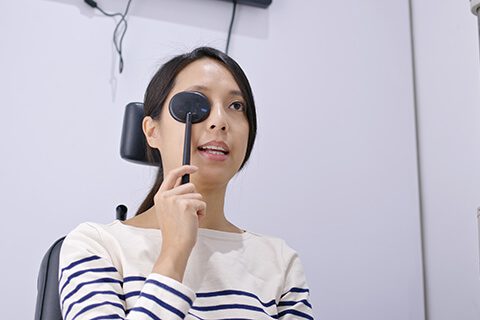
Eye Center of Hawaii is dedicated to providing preventative eye care and treatment to families across Hawaii. We offer comprehensive diagnostic, medical, and surgical services that include screening and treatment for common eye diseases, vision loss analysis, prescriptions for glasses and contact lenses, and routine eye exams.
Head surgeon and founder, Michael D. Bennett, MD, FACS, is also proud to provide state-of-the-art eye care services for cataract, retina, glaucoma, low vision, sports vision, and LASIK.
Routine Eye Exams
Why are eye exams important?
Eye exams are designed to detect more than just blurry vision. Regular visits to your eye doctor are important for early detection and treatment of eye diseases such as cataracts, glaucoma, diabetic retinopathy, and macular degeneration, all of which can cause serious vision loss or permanent blindness if left untreated. Consistent eye exams allow your doctor to monitor the health of your eyes, provide a diagnosis and treatment as needed, and prolong your vision for as long as possible.
How often should I schedule an eye exam?
Children – The American Optometric Association recommends starting with a comprehensive vision assessment at 6 months of age. Your doctor will check for signs of eye and vision problems that may hinder development such as nearsightedness, farsightedness, astigmatism, eye movement ability, and eye health problems.

Your child’s next examination should be scheduled around age 3, then again before he or she starts school. After that, the general recommendation is to schedule an exam every two years until age 18. Vision problem risk factors such as premature birth, developmental delays, family history of eye disease, or a refractive error diagnosis may require more frequent eye exams.
Adults ages 18 to 55 – Healthy adults in this age range should schedule a comprehensive eye exam at least every two years. At-risk adults should have an exam every six months to a year. “At-risk” means you are more likely to develop vision problems if you have diabetes, high blood pressure, or a family history of eye disease, take certain prescription medications, have an eye injury, or if you had an eye procedure such as cataract surgery.
Adults ages 55 and up – Annual comprehensive exams are recommended for adults in this age range, since seniors are more at risk for vision problems and sight-threatening eye diseases. Risk factors such as diabetes, high blood pressure and medical history may necessitate more frequent eye exams.
What happens during a comprehensive eye exam?
A comprehensive eye exam includes pupil dilation and a range of tests to measure visual acuity and eye muscle movement. Your eye doctor will also examine the inside of your eyes for signs of abnormalities. Special equipment is used to screen for conditions like cataracts, macular degeneration, diabetic retinopathy, and glaucoma. Your doctor will also ask questions about your medical history to identify potential risk factors for eye problems.
Eye Care Specialties
Cataract – Eye Center of Hawaii is proud to offer laser cataract surgery in Hawaii. This modern procedure is the most precise form of cataract removal available today. Computer-guided accuracy and state-of-the-art intraocular lens implants result in crystal clear vision that lasts.
Retina- A healthy retina is essential to clear vision. As we age, however, the retina is more susceptible to damage. If left untreated, retinal damage can result in permanent blindness. At Eye Center of Hawaii, we provide diagnosis and treatment for retinal conditions such as diabetic retinopathy, macular degeneration, retinal tears, and detachments.
Glaucoma – Known as the “silent thief of sight,” glaucoma is a serious eye disease that can take away your vision without warning. Symptoms of this disease often go unnoticed, as it progresses slowly over time. Eye Center of Hawaii offers glaucoma screenings, advanced laser treatment and micro-invasive glaucoma surgery (MIGS) at our eye care facilities in Hawaii.
Low Vision – A person with low vision has a significant visual impairment that can’t be corrected with glasses, contacts, medication, or eye surgery. Eye diseases are most often the cause of the impairment. At Eye Center of Hawaii, our team of low vision specialists can evaluate the degree and type of vision loss, recommend appropriate vision aids, and provide education on how to live with low vision.
Sports Vision – Athletic performance is dependent on good vision. From eye testing and analysis to personalized training and custom eyewear, Eye Center of Hawaii offers a full spectrum of sports vision services to the people of Hawaii.
LASIK – A quick and painless procedure, LASIK is the most popular form of vision correction in the world. This popular refractive surgery is an excellent option for the majority of patients who wish to reduce or eliminate their dependence on glasses and contacts. At Eye Center of Hawaii, we use the best laser technology to achieve your ideal visual outcome.
Dry Eye –



Whether it's macular degeneration or cataracts or a simple eye exam, you can find the most advanced care at our offices across the islands. Mahalo, David, for taking the time to tell about your experience with Dr. Miller and our Kona team while they took care of your macular degeneration. We take care of our patients like they are 'ohana.
🌺#ohana #MacularDegeneration #hawaii #bigisland #Eyecare ... See MoreSee Less
0 CommentsComment on Facebook
Each year, approximately 100,000 people suffer sports-related eye injuries, with around 13,500 leading to permanent vision loss. Most sports-related eye injuries can be prevented by wearing the right protective gear. Visit our optical in Kona and Lihue to get outfitted with the right eyewear for your active lifestyle.
#SportsEyeSafety #ProtectiveEyewear #sportsprotection ... See MoreSee Less
0 CommentsComment on Facebook
Your vision plays a vital role in your quality of life, and routine eye exams can help detect early signs of systemic conditions like diabetes, hypertension, and more.
✅ Schedule your annual eye exam
✅ Protect your eyes from UV rays
✅ Eat a nutrient-rich diet for healthy vision
Let’s keep our eyes—and our bodies—healthy together. 💙
#WorldHealthDay #EyeHealthMatters #VisionCare #Ophthalmology #HealthyEyesHealthyYou ... See MoreSee Less
0 CommentsComment on Facebook
Don't live with cloudy vision due to cataracts. We offer advanced Laser Cataract Surgery at the Ali’i Surgery Center on Oahu. Call us today to schedule your cataract exam and discover if now is the time for your cataract surgery. ... See MoreSee Less
0 CommentsComment on Facebook
We are so blessed with amazing optometrists who care deeply for our 'ohana. Mahalo Dr. Kashiwa, Dr. Ho and Dr. Bryant for taking such great care of our community. Happy World Optometry Day. ... See MoreSee Less
0 CommentsComment on Facebook
"Cez” has been working in the field of ophthalmology for over 18 years and has been with us for 12. She even volunteers her services to provide free eye care in the Philippines as part of the Bayanihan Without Walls Program. She serves multi-functionally as the clinic manager for all BEI locations and as a lead surgery coordinator/technician. A fluent native speaker of Ilocano and Tagalog, Cez is very passionate and tremendously happy and dedicated to providing quality eye care to every patient who comes her way. Drop a ❤️ or a comment below to thank her for all her hard work! ... See MoreSee Less
0 CommentsComment on Facebook